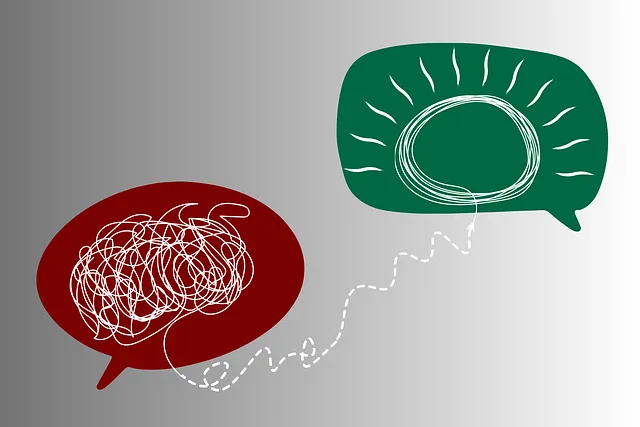Englewood Kaiser Permanente's behavioral health services emphasize resilience as a key driver of client success, implementing Recovery-Focused Modeling (RFM) for tailored support and coping skills development. Through programs like Social Skills Training and Crisis Intervention Guidance, they've fostered emotional well-being among staff, preventing burnout and enhancing patient care. Combining mindfulness with cognitive-behavioral techniques and regular risk assessments, RFM aims to revolutionize stress management, with success measured through self-reported surveys for continuous improvement in mental wellness.
“Resilience is a cornerstone of mental well-being, especially in the demanding landscape of behavioral health services. The RFM (Resilience, Flexibility, and Mindfulness) framework has emerged as a powerful tool to enhance clients’ coping mechanisms and overall resilience. This article explores the significance of RFM within Englewood Kaiser Permanente’s behavioral health services, drawing from a successful case study. We’ll delve into practical strategies for integrating RFM into programs, measuring its impact, and discuss how this approach can revolutionize care delivery.”
- Understanding RFM and its Relevance in Behavioral Health Services
- Englewood Kaiser Permanente: A Case Study on Implementing Resilience Building Exercises
- Strategies for Effective Integration of RFM into Behavioral Health Programs
- Measuring Success: Evaluating the Impact of RFM and Resilience Training
Understanding RFM and its Relevance in Behavioral Health Services

At Englewood Kaiser Permanente behavioral health services, recognizing the importance of resilience is key to enhancing client outcomes. RFM, or Recovery-Focused Modeling, serves as a powerful framework that shifts the focus from challenges to recovery and growth. This approach is particularly relevant in addressing the complex needs of individuals seeking behavioral health support. By integrating techniques like coping skills development and mindfulness meditation, RFM empowers clients to build resilience, foster hope, and take charge of their well-being.
Through RFM, Englewood Kaiser Permanente offers a transformative experience, encouraging clients to develop confidence boosting strategies tailored to their unique journeys. This personalized approach acknowledges that resilience is not just about overcoming adversity but also about cultivating inner strength and adaptive coping mechanisms. By embracing RFM principles, the behavioral health services at Englewood Kaiser Permanente strive to create an environment where individuals can thrive, navigate life’s challenges with greater ease, and discover their inherent capacity for recovery.
Englewood Kaiser Permanente: A Case Study on Implementing Resilience Building Exercises

Englewood Kaiser Permanente stands as a compelling case study for implementing resilience-building exercises within behavioral health services. The organization faced challenges related to staff burnout, a common issue in the healthcare sector, particularly among those providing intensive care. To address this, they introduced structured programs focusing on enhancing resilience and coping mechanisms. These initiatives included Social Skills Training, designed to improve interaction with patients and reduce stress, and Crisis Intervention Guidance, equipping staff with tools for managing high-pressure situations effectively.
Through these programs, Englewood Kaiser Permanente aimed to foster a culture of emotional well-being and adaptability among its healthcare providers. By integrating Burnout Prevention Strategies, the organization recognized the importance of proactive measures to safeguard staff mental health. This holistic approach not only promises better patient care but also ensures that caregivers can sustain their essential services over time, making it a significant model for other institutions facing similar challenges in behavioral health management.
Strategies for Effective Integration of RFM into Behavioral Health Programs

Englewood Kaiser Permanente behavioral health services have recognized the power of integrating RFM (Resilience, Flexibility, and Mindfulness) practices into their programs to enhance client outcomes. By incorporating strategies that foster resilience, healthcare professionals can equip individuals with effective coping mechanisms for managing stress and anxiety. One key approach is to design tailored interventions that combine mindfulness exercises with cognitive-behavioral techniques, allowing clients to develop a deeper sense of self-awareness and positive thinking.
Additionally, regular risk assessments for mental health professionals are crucial in identifying potential triggers and implementing preventive measures. This proactive strategy ensures that both clients and practitioners can navigate challenging situations safely and effectively. By seamlessly integrating RFM into existing behavioral health services, Englewood Kaiser Permanente aims to revolutionize care, offering comprehensive support for anxiety relief and promoting overall well-being.
Measuring Success: Evaluating the Impact of RFM and Resilience Training

Measuring the success of RFM (Resilience, Flexibility, and Mastery) and resilience-building exercises is a crucial step in evaluating the effectiveness of behavioral health interventions, particularly within organizations like Englewood Kaiser Permanente’s behavioral health services. By implementing these training programs, institutions aim to enhance mental wellness among their workforce or clients, fostering an environment that promotes adaptability and emotional resilience. Success can be quantified through various means, including self-reported surveys, where participants reflect on their improved ability to manage stress, adapt to change, and maintain a positive mindset.
The Mental Wellness Podcast Series Production team at Kaiser Permanente could leverage these evaluations to refine and improve their coaching programs development. By collecting feedback from participants, they can identify the most impactful exercises and strategies for building empathy within their unique context. This data-driven approach ensures that Empathy Building Strategies are tailored to meet the specific needs of the audience, ultimately leading to more sustainable mental wellness improvements and enhanced overall resilience.
The implementation of RFM (Resilience, Flexibility, and Mastery) exercises in behavioral health services, as illustrated by the case study of Englewood Kaiser Permanente, demonstrates significant potential for enhancing patient outcomes. By integrating these strategies into programs, healthcare providers can empower individuals to build resilience, navigate challenges more effectively, and ultimately improve their overall well-being. This approach, backed by measurable impact assessments, holds promise for transforming behavioral health care, particularly within the context of Englewood Kaiser Permanente’s innovative practices in behavioral health services.






